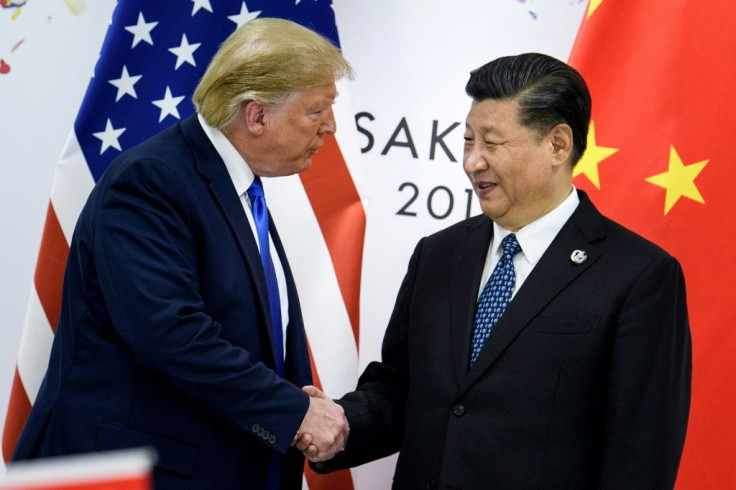Trump Okays Phase One Of US-China Trade Deal To Avert Tariffs

KEY POINTS
- Trump approves phase one trade deal with China
- It would delay U.S. tariffs, sanctions on Chinese goods
- Both nations wouldn't manipulate their currencies too
- Legal text of the trade deal is being prepared
President Donald Trump has signed off on a phase-one trade deal with China which would avert imminent U.S. tariffs and reduce sanctions in exchange for a promise from China to purchase U.S. agricultural produce, reports said.
The agreement would delay the Dec. 15 introduction of a new wave of tariffs on $160 billion in Chinese-made consumer electronics and toys. It would also reduce some of the existing tariffs on the Asian country by half.
Trade officials had met with Trump Thursday afternoon at White House, to brief the President about the agreement. The terms in the agreement have been agreed and negotiators are working to finalize the legal text, CNN reported citing officials familiar with the agreement.
Breaking news: White House, Chinese negotiators reach trade deal in principle that would dramatically scale back import tariffs https://t.co/58hsYpfhhn
— The Washington Post (@washingtonpost) December 12, 2019
The administration reportedly reached out to the business committee and allies in Capitol Hill to show their support for the agreement once the announcement was made.
In exchange for the rollback in tariffs, China has promised to purchase U.S. agricultural products, something which Beijing was reluctant to agree for a year. Past negotiations between the two nations have seen China make similar pledges, but they mostly failed to keep their promise of large purchases.
Though the phase one deal does not bring about any major changes to the structure of the Chinese economy as Trump had sought, the deal would make China commit more to stop intellectual-property theft and an agreement by both sides not to manipulate their currencies.
The breakthrough in the trade talks come after much negotiations between the two countries since talks resumed in October.
U.S. stocks closed higher Thursday as Trump announced the imminent trade deal with China.
Early Thursday, Trump tweeted a trade deal was “very close,” saying, “They want it, and so do we!” However, a week ago in London, the President was not so optimistic, when he suggested that he wouldn’t mind waiting until after the 2020 elections for progress to be made in the talks.
“The outcome of U.S.-China trade talks will be a key determinant of the trajectory for 2020 growth,” said Tom Orlik, chief economist at Bloomberg. “At one extreme, a deal that takes tariffs back to May 2019 levels, and provides certainty that the truce will hold, could deliver a 0.6% boost to global [gross domestic product]. At the other, a breakdown in talks would mean the trade drag extends into the year ahead.”
The trade agreement with China comes days after Trump reached a deal with House Democrats on a trade agreement with Mexico and Canada.
Federal Reserve chairman Jerome Powell avoided commenting directly on a specific trade deal but said Wednesday that progress on major trade deals "would remove uncertainty and be a positive" for the U.S. economy.
© Copyright IBTimes 2024. All rights reserved.





















